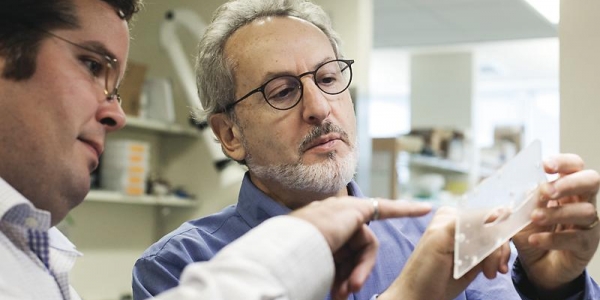
Kelvin Ma for The Chronicle
Donald Ingber (right), a Harvard scientist supported by Darpa, looks over a prototype of his “organ on a chip” biometric cartridge.
By Paul Basken
Donald E. Ingber, a professor at Harvard University, has combined advanced electronics and biology to create a “lung on a chip,” a breakthrough device that could safely allow precise tests of risky new medical treatments before they are tried out on humans.
Just as eye-opening as his work, however, may be his source of federal financing.
It’s not the National Institutes of Health, the $30-billion agency that is the largest provider of federal basic-research money to universities. Instead it’s the Defense Advanced Research Projects Agency, or Darpa, an agency one-tenth as large as NIH and responsible primarily for meeting the military’s technological needs.
Click here to read the full story.